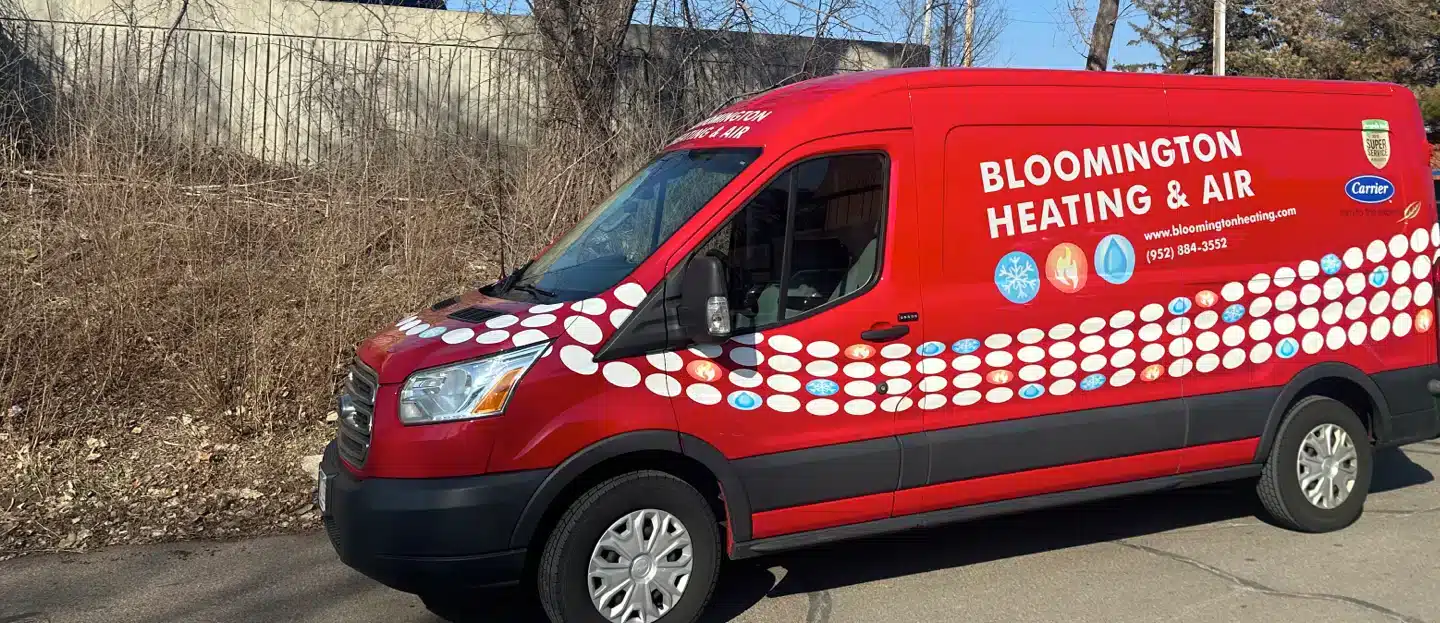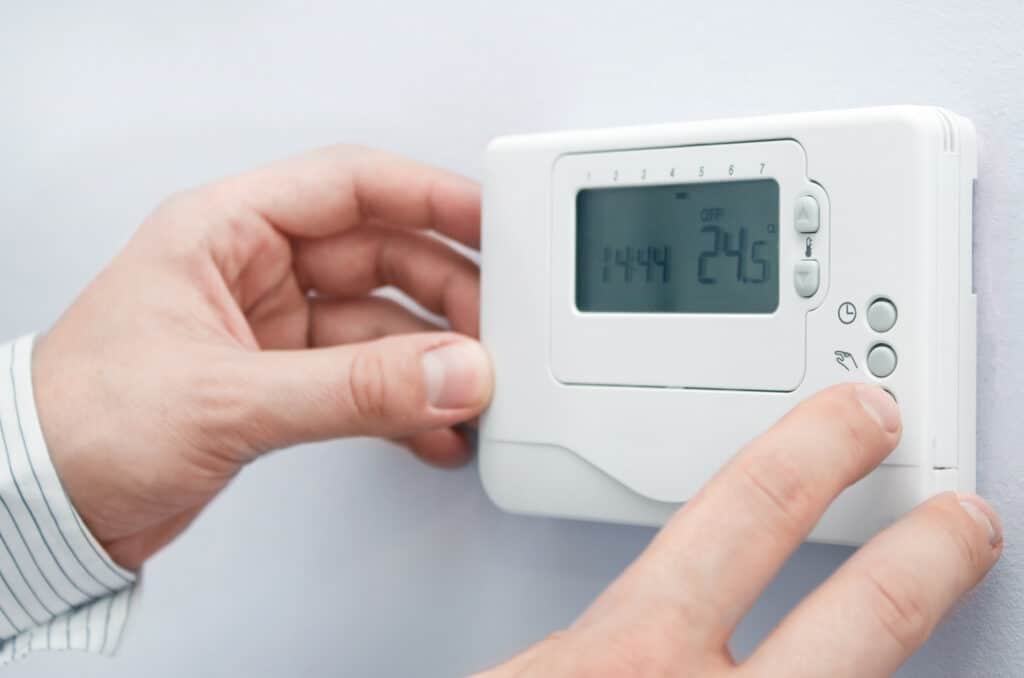How To Control Indoor Humidity In Bloomington, MN
Trustworthy Team, Locally Owned

24/7 Emergency Phone Line
Family Owned & Operated
Licensed, Bonded & Insured
Indoor humidity may only cross your mind during a dry, cold winter. But the amount of moisture in the air during late summer can affect both comfort and health. When the level is too high, you and others in the home may experience asthma-like symptoms, allergies, and headaches. Humidity levels that are too low can lead to sinus issues, flaky and itchy skin, and stiff joints. To help our customers enjoy their indoor air quality, Bloomington Heating & Air answers questions about indoor humidity and offers ways to control humidity levels.
What Is A Good Humidity Level In Your House?
The ideal level of indoor humidity is between 45 percent and 55 percent. A level below 30 percent is too dry, while higher 55 percent is too moist. Common signs of a high indoor humidity level include:
- Blistering or peeling paint or wallpaper;
- Condensation on the windows;
- Doors and windows that are difficult to open or stick;
- Dust mites;
- Mold and/or mildew growth, usually in the bathroom, kitchen, or closets;
- Poor sleep quality; and
- Smelly or wilted indoor plants.
Your heating and cooling system plays a significant role in helping to manage indoor humidity levels, which is why it’s important to call Bloomington Heating & Air for air conditioner repairs as soon as an issue arises. Our technicians will troubleshoot and fix the issue to ensure the system is operating again before indoor humidity levels increase.

Where Does Excess Humidity Coming From?
Many homeowners quickly discover finding the source of a humidity issue is easier said than done. This is because there can be any number of moisture sources, such as damp soil, leaky plumbing, and indoor plants. While you can repair leaky plumbing and switch transpiring plants for plants that absorb humidity, the source can still linger in your home. An HVAC company, such as Bloomington Heating & Air, can suss out the humidity source and create a custom plan for controlling humidity levels year-round.
5 Ways To Control Indoor Humidity Levels
When the indoor humidity is at an ideal level, your home will benefit. Bloomington Heating & Air offers these five easy ways to control the humidity level in your home.
1. Schedule Regular AC Maintenance
If you think the air conditioner makes your home comfortable by simply blowing cool air, you’re half right. The cool air is the result of the unit pulling warm, humid air from the home and changing its temperature through the evaporator coil. Unless an air conditioner receives routine maintenance and timely ac repairs when needed, the unit can’t effectively help regulate the indoor humidity.
When the air conditioner in your home isn’t working, the indoor humidity and temperature rise quickly. Avoid the hassle and schedule an appointment for HVAC maintenance with Bloomington Heating & Air! Our technicians will inspect the system and make sure all components are functional so there aren’t any unexpected end-of-summer breakdowns.
2. Use Exhaust Fans In The Bathroom & Kitchen
Bathing, showering, and cooking use large amounts of water. When high temperatures are added to this water, humidity is created. Exhaust fans pull the humid air from the room, moving it out through ductwork before it has a chance to disperse throughout the home and raise the indoor humidity level. If your home already has exhaust fans, regularly check to make sure each fan is working properly. This also includes inspecting the attached ventilation shaft for leaks and obstructions to the air flow.
3. Dehumidify Individual Rooms
If your home has a troublesome room, consider using a dehumidifier. These small appliances are great for basements and other rooms where moisture naturally lingers, such as laundry rooms.
4. Repair Leaky Pipes & Other Plumbing Issues
A slow drip or sudden deluge doesn’t matter — leaky pipes and plumbing unnecessarily contribute to the indoor humidity by adding moisture to the air. Calling a plumber to fix the issue will not only eliminate a source of moisture but also lower your monthly water bill.
5. Take Shorter, Cooler Showers
A long, hot shower is OK once in a while but taking them all the time will raise the humidity. Humidity has less of a chance to form when the surrounding air is cooler and unable to hold as much moisture.
